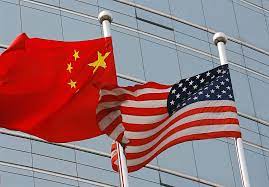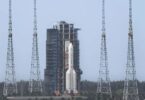The former US Navy Officer and Coordinator for Strategic Communication at the US National Security Council (NSC), John Francis Kirby has termed the growing Sino-Russia association a marriage of convenience, as Russian Strongman Vladimir Putin sees President Xi Jinping as his backer and both countries are getting, even more, closer every passing day.
According to US Spokesman, President Xi should also speak to the Ukrainian President and stress Russia to stop bombing schools and hospitals in Ukraine. John Kirby noted that China was not impartial with regard to the Russian invasion of Ukraine, and President Xi perceives it’s some western war on Russia. On the same go, American diplomat accused China of continuous violations and attempts to change a rule-based order in the South China Sea.
The competition between the US-led western bloc and Russo-China coalition has ramped up during these days as the global geopolitical landscapes are changing rapidly and warring nations are continuously taking strategic diplomatic and military maneuvers to expand their influence in other parts of the world.
The recent Chinese brokered Saudi-Iran rapprochement and President Xi’s peace and cooperation diplomacy in Eastern Europe have prompted an outcry and serious concerns in western capitals because those pivotal Chinese diplomatic moves not only dented the United States’ diplomacy at the global level but also seriously undermined western interest in the Middle East region along with having far-reaching effects over the ongoing war in Ukraine.
Apparently, the US-China tussle is likely to intensify in multiple spheres including global trade, international economy, and diplomacy, the Taiwan issue, and the situation in the South China Sea, where western Naval vessels’ regular presence and patrol in regional waters continuously irk competing powers. At the same time, Chinese diplomatic outreach in the Middle East, Africa, and other regions is likely to kick off a new wave of global rivalry, regional proxies, and interstate conspiracies that would ultimately affect peace and stability in multiple regions across the globe.
US Envoy has termed Chinese economic and diplomatic outreach as a debt trap and tool for Chinese expansionism and hinted at US’s Counter China policy in contesting regions including Africa, the Middle East, South, and East Asia. Interestingly, the Middle East and North Africa which yet not completely got out of the destructionist effects of the decade-long wave of Arab Spring will likely face another shake of foreign-inflicted choas and instability in the future.
The current global and regional geopolitics is continuously evolving and each nation is adjusting itself to the changed geopolitical environment to ensure its sovereignty and survival in the contemporary world. In the current global and regional geostrategic landscapes, an economically fragile nuclear Pakistan is of high importance for both contesting blocs, while China and the US are using Pakistan’s weakness to influence its foreign and security policies in their favor.
Pakistani leadership needs to use its cards tactfully to protect its core interests without sliding into bloc politics. Rationally, being first-door neighbors, Pakistan, and China have converging interests, and their economic and security cooperation satisfactorily satisfy their interests. As the CPEC has not yet begun yielding its full potential, therefore Chinese business giants must increase their investment in the CPEC’s Special Economic Zones (SEZs) to maximize the financial dividends of this Sino-Pak joint economic and regional connectivity ventures. On the other hand, Islamabad has deep economic and security relations with the United States and European Union that needs enhancement and further expansion that benefits both sides. In fact, Pakistan needs a thoughtful stratagem and a fully sovereign and competent leadership to steer through this challenging time as better we would be prepared and tackle the situation as safe, smooth, and secure would be our future.







